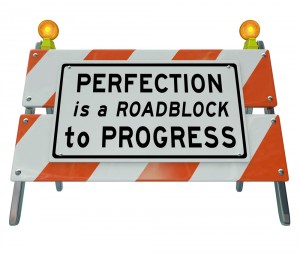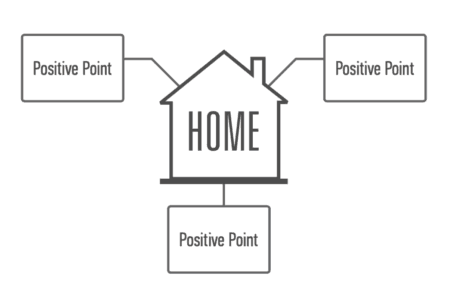
How good content beats perfect content marketing

Content marketing can’t afford to become a quest for perfection. That’s because perfect content is the enemy of good content.
Chasing the holy grail of perfect content actually yields fewer results.
Pursuing perfection is a game of rapidly diminishing returns. Put too much time into one piece of content, and you rob all the other content that could have been created. Go for progress, not perfection.
Creating content is a bit like water treatment. Everyone wants clean water, but how clean do you really need? You can keep making water cleaner and cleaner, when you’re willing to pay the price.
For example, you can build a water treatment system that removes:
- 90% of dirt from a quantity of water for $1
- 95% for $2
- 97% for $3
- 99% for $4.
- Or, if you really need water that’s chemically and biologically pure, as certain laboratories do, 100% for $6 to $10.
The point is, not all water needs to be 100% pure: it depends what you’re using it for. To water the garden or wash clothes, you just don’t need 100% pure water. That becomes wasteful.
Ask yourself what level of quality each piece of content really needs. Here’s the trade-off: for the same cost you can get either 1 batch of water that’s 99% pure or 2 batches that are 95% pure.
The same applies to content. Remember: 95% is pretty darn good! I contend that you’re better off with twice the water –- or twice the content.
Avoid trying to make content perfect. Symptoms of perfectionism in content marketing manifest as:
- An editorial calendar that’s so rigid, there’s no room for newsjacking. News media plan 60% to 80% of content in advance, and they also keep resources free to take advantage of breaking news. Similarly, content marketers should leave room for up-to-the-minute content.
- A publishing process that doesn’t exist, or a process with too many steps to follow. If there’s no repeatable process for generating content, write out a simple process. If everyone’s puzzling over a too-complicated process, cut out the unneeded steps in the process – as you preserve overall content quality.
- A review process that tries to bolt on quality through reviewers, rather than building in quality up front. If it’s too hard to publish each piece of content due to a slow or convoluted review process, change the review process.To do so, gain executive agreement on the content marketing basics up front:
— Know your customers through buyer personas.
— Define your message in advance through a 1-page Message Map.
— Follow your written content marketing strategy.
— Use your editorial calendar for guidance.
— Outfox your competitors with a competitive content audit.
— Don’t crowd out the time for improvisation or experimentation.
To make your review process simple and easy, tell reviewers: “Your input is welcome for the next 24 hours. After that we will publish to hit our deadlines.”
Use the minimum viable number of reviewers who can add value, enforce quick turnaround times for reviews, and empower a content editor with a free hand to make editorial decisions.
Make your path to high-quality content easier by avoiding perfectionism.
Create 2 or 3 good pieces of content rather than 1 perfect piece. Two pieces make it twice as easy for buyers to find the relevant content they need for their buying journey.
That’s how good content trumps perfect content.
Contact Us
Related Posts
To tell your story, where do you begin?
In my workshops, we do a lightning-fast exercise to create a 7-second story on a Message Map. A Message Map gives you an elevator...
2022 Marketing Success Stories
As 2022 draws to a close, I’m publishing my annual blog of marketing success stories from which others can learn. While some people resumed...
2020 in review: Successful marketing strategies
Due to the pandemic, 2020 has been a rough year for many. Fortunately, the year is drawing to a close, and the vaccines bring...
Presenting? Use these tips to be remembered
Be remembered when presenting. Giving a presentation can be a great way to get your story heard. It helps both your personal brand and...





